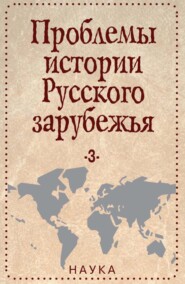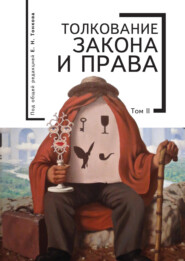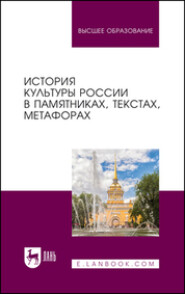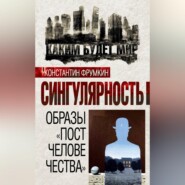По всем вопросам обращайтесь на: info@litportal.ru
(©) 2003-2024.
✖
30 лучших рассказов британских писателей / 30 Best British Short Stories
Настройки чтения
Размер шрифта
Высота строк
Поля
‘Well, I hope so,’ said the chairman, with some warmth.
‘You see him?’ panted the excited hotel keeper; ‘you see the waiter who took them away? You know him?’
‘Know the waiter?’ answered Mr. Audley indignantly. ‘Certainly not!’
Mr. Lever opened his hands with a gesture of agony. ‘I never send him,’ he said. ‘I know not when or why he come. I send my waiter to take away the plates, and he find them already away.’
Mr. Audley still looked rather too bewildered to be really the man the empire wants; none of the company could say anything except the man of wood – Colonel Pound – who seemed galvanised into an unnatural life. He rose rigidly from his chair, leaving all the rest sitting, screwed his eyeglass into his eye, and spoke in a raucous undertone as if he had half-forgotten how to speak. ‘Do you mean,’ he said, ‘that somebody has stolen our silver fish service?’
The proprietor repeated the open-handed gesture with even greater helplessness and in a flash all the men at the table were on their feet.
‘Are all your waiters here?’ demanded the colonel, in his low, harsh accent.
‘Yes; they’re all here. I noticed it myself,’ cried the young duke, pushing his boyish face into the inmost ring. ‘Always count ’em as I come in; they look so queer standing up against the wall.’
‘But surely one cannot exactly remember,’ began Mr. Audley, with heavy hesitation.
‘I remember exactly, I tell you,’ cried the duke excitedly. ‘There never have been more than fifteen waiters at this place, and there were no more than fifteen tonight, I’ll swear; no more and no less.’
The proprietor turned upon him, quaking in a kind of palsy of surprise. ‘You say – you say,’ he stammered, ‘that you see all my fifteen waiters?’
‘As usual,’ assented the duke. ‘What is the matter with that!’
‘Nothing,’ said Lever, with a deepening accent, ‘only you did not. For one of zem is dead upstairs.’
There was a shocking stillness for an instant in that room. It may be (so supernatural is the word death) that each of those idle men looked for a second at his soul, and saw it as a small dried pea. One of them – the duke, I think – even said with the idiotic kindness of wealth: ‘Is there anything we can do?’
‘He has had a priest,’ said the Jew, not untouched.
Then, as to the clang of doom, they awoke to their own position. For a few weird seconds they had really felt as if the fifteenth waiter might be the ghost of the dead man upstairs. They had been dumb under that oppression, for ghosts were to them an embarrassment, like beggars. But the remembrance of the silver broke the spell of the miraculous; broke it abruptly and with a brutal reaction. The colonel flung over his chair and strode to the door. ‘If there was a fifteenth man here, friends,’ he said, ‘that fifteenth fellow was a thief. Down at once to the front and back doors and secure everything; then we’ll talk. The twenty-four pearls of the club are worth recovering.’
Mr. Audley seemed at first to hesitate about whether it was gentlemanly to be in such a hurry about anything; but, seeing the duke dash down the stairs with youthful energy, he followed with a more mature motion.
At the same instant a sixth waiter ran into the room, and declared that he had found the pile of fish plates on a sideboard, with no trace of the silver.
The crowd of diners and attendants that tumbled helter-skelter down the passages divided into two groups. Most of the Fishermen followed the proprietor to the front room to demand news of any exit. Colonel Pound, with the chairman, the vice-president, and one or two others darted down the corridor leading to the servants’ quarters, as the more likely line of escape. As they did so they passed the dim alcove or cavern of the cloak room, and saw a short, black-coated figure, presumably an attendant, standing a little way back in the shadow of it.
‘Hallo, there!’ called out the duke. ‘Have you seen anyone pass?’
The short figure did not answer the question directly, but merely said: ‘Perhaps I have got what you are looking for, gentlemen.’
They paused, wavering and wondering, while he quietly went to the back of the cloak room, and came back with both hands full of shining silver, which he laid out on the counter as calmly as a salesman. It took the form of a dozen quaintly shaped forks and knives.
‘You – you –’ began the colonel, quite thrown off his balance at last. Then he peered into the dim little room and saw two things: first, that the short, black-clad man was dressed like a clergyman; and, second, that the window of the room behind him was burst, as if someone had passed violently through. ‘Valuable things to deposit in a cloak room, aren’t they?’ remarked the clergyman, with cheerful composure.
‘Did – did you steal those things?’ stammered Mr. Audley, with staring eyes.
‘If I did,’ said the cleric pleasantly, ‘at least I am bringing them back again.’
‘But you didn’t,’ said Colonel Pound, still staring at the broken window.
‘To make a clean breast of it, I didn’t,’ said the other, with some humour. And he seated himself quite gravely on a stool. ‘But you know who did,’ said the colonel.
‘I don’t know his real name,’ said the priest placidly, ‘but I know something of his fighting weight, and a great deal about his spiritual difficulties. I formed the physical estimate when he was trying to throttle me, and the moral estimate when he repented.’
‘Oh, I say – repented!’ cried young Chester, with a sort of crow of laughter.
Father Brown got to his feet, putting his hands behind him. ‘Odd, isn’t it,’ he said, ‘that a thief and a vagabond should repent, when so many who are rich and secure remain hard and frivolous, and without fruit for God or man? But there, if you will excuse me, you trespass a little upon my province. If you doubt the penitence as a practical fact, there are your knives and forks. You are The Twelve True Fishers, and there are all your silver fish. But He has made me a fisher of men.’
‘Did you catch this man?’ asked the colonel, frowning.
Father Brown looked him full in his frowning face. ‘Yes,’ he said, ‘I caught him, with an unseen hook and an invisible line which is long enough to let him wander to the ends of the world, and still to bring him back with a twitch upon the thread.’
There was a long silence. All the other men present drifted away to carry the recovered silver to their comrades, or to consult the proprietor about the queer condition of affairs. But the grim-faced colonel still sat sideways on the counter, swinging his long, lank legs and biting his dark moustache.
At last he said quietly to the priest: ‘He must have been a clever fellow, but I think I know a cleverer.’
‘He was a clever fellow,’ answered the other, ‘but I am not quite sure of what other you mean.’
‘I mean you,’ said the colonel, with a short laugh. ‘I don’t want to get the fellow jailed; make yourself easy about that. But I’d give a good many silver forks to know exactly how you fell into this affair, and how you got the stuff out of him. I reckon you’re the most up-to-date devil of the present company.’
Father Brown seemed rather to like the saturnine candour of the soldier. ‘Well,’ he said, smiling, ‘I mustn’t tell you anything of the man’s identity, or his own story, of course; but there’s no particular reason why I shouldn’t tell you of the mere outside facts which I found out for myself.’
He hopped over the barrier with unexpected activity, and sat beside Colonel Pound, kicking his short legs like a little boy on a gate. He began to tell the story as easily as if he were telling it to an old friend by a Christmas fire.
‘You see, colonel,’ he said, ‘I was shut up in that small room there doing some writing, when I heard a pair of feet in this passage doing a dance that was as queer as the dance of death. First came quick, funny little steps, like a man walking on tiptoe for a wager; then came slow, careless, creaking steps, as of a big man walking about with a cigar. But they were both made by the same feet, I swear, and they came in rotation; first the run and then the walk, and then the run again. I wondered at first idly and then wildly why a man should act these two parts at once. One walk I knew; it was just like yours, colonel. It was the walk of a well-fed gentleman waiting for something, who strolls about rather because he is physically alert than because he is mentally impatient. I knew that I knew the other walk, too, but I could not remember what it was. What wild creature had I met on my travels that tore along on tiptoe in that extraordinary style? Then I heard a clink of plates somewhere; and the answer stood up as plain as St. Peter’s. It was the walk of a waiter – that walk with the body slanted forward, the eyes looking down, the ball of the toe spurning away the ground, the coat tails and napkin flying. Then I thought for a minute and a half more. And I believe I saw the manner of the crime, as clearly as if I were going to commit it.’
Colonel Pound looked at him keenly, but the speaker’s mild grey eyes were fixed upon the ceiling with almost empty wistfulness.
‘A crime,’ he said slowly, ‘is like any other work of art. Don’t look surprised; crimes are by no means the only works of art that come from an infernal workshop. But every work of art, divine or diabolic, has one indispensable mark – I mean, that the centre of it is simple, however much the fulfilment may be complicated. Thus, in Hamlet, let us say, the grotesqueness of the grave-digger, the flowers of the mad girl, the fantastic finery of Osric, the pallor of the ghost and the grin of the skull are all oddities in a sort of tangled wreath round one plain tragic figure of a man in black. Well, this also,’ he said, getting slowly down from his seat with a smile, ‘this also is the plain tragedy of a man in black. Yes,’ he went on, seeing the colonel look up in some wonder, ‘the whole of this tale turns on a black coat. In this, as in Hamlet, there are the rococo excrescences – yourselves, let us say. There is the dead waiter, who was there when he could not be there. There is the invisible hand that swept your table clear of silver and melted into air. But every clever crime is founded ultimately on some one quite simple fact – some fact that is not itself mysterious. The mystification comes in covering it up, in leading men’s thoughts away from it. This large and subtle and (in the ordinary course) most profitable crime, was built on the plain fact that a gentleman’s evening dress is the same as a waiter’s. All the rest was acting, and thundering good acting, too.’
‘Still,’ said the colonel, getting up and frowning at his boots, ‘I am not sure that I understand.’
‘Colonel,’ said Father Brown, ‘I tell you that this archangel of impudence who stole your forks walked up and down this passage twenty times in the blaze of all the lamps, in the glare of all the eyes. He did not go and hide in dim corners where suspicion might have searched for him. He kept constantly on the move in the lighted corridors, and everywhere that he went he seemed to be there by right. Don’t ask me what he was like; you have seen him yourself six or seven times tonight. You were waiting with all the other grand people in the reception room at the end of the passage there, with the terrace just beyond. Whenever he came among you gentlemen, he came in the lightning style of a waiter, with bent head, flapping napkin and flying feet. He shot out on to the terrace, did something to the table cloth, and shot back again towards the office and the waiters’ quarters. By the time he had come under the eye of the office clerk and the waiters he had become another man in every inch of his body, in every instinctive gesture. He strolled among the servants with the absent-minded insolence which they have all seen in their patrons. It was no new thing to them that a swell from the dinner party should pace all parts of the house like an animal at the Zoo; they know that nothing marks the Smart Set more than a habit of walking where one chooses. When he was magnificently weary of walking down that particular passage he would wheel round and pace back past the office; in the shadow of the arch just beyond he was altered as by a blast of magic, and went hurrying forward again among the Twelve Fishermen, an obsequious attendant. Why should the gentlemen look at a chance waiter? Why should the waiters suspect a first-rate walking gentleman? Once or twice he played the coolest tricks. In the proprietor’s private quarters he called out breezily for a syphon of soda water, saying he was thirsty. He said genially that he would carry it himself, and he did; he carried it quickly and correctly through the thick of you, a waiter with an obvious errand. Of course, it could not have been kept up long, but it only had to be kept up till the end of the fish course.
‘His worst moment was when the waiters stood in a row; but even then he contrived to lean against the wall just round the corner in such a way that for that important instant the waiters thought him a gentleman, while the gentlemen thought him a waiter. The rest went like winking. If any waiter caught him away from the table, that waiter caught a languid aristocrat. He had only to time himself two minutes before the fish was cleared, become a swift servant, and clear it himself. He put the plates down on a sideboard, stuffed the silver in his breast pocket, giving it a bulgy look, and ran like a hare (I heard him coming) till he came to the cloak room. There he had only to be a plutocrat again – a plutocrat called away suddenly on business. He had only to give his ticket to the cloak-room attendant, and go out again elegantly as he had come in. Only – only I happened to be the cloak-room attendant.’
‘What did you do to him?’ cried the colonel, with unusual intensity. ‘What did he tell you?’
‘I beg your pardon,’ said the priest immovably, ‘that is where the story ends.’
‘And the interesting story begins,’ muttered Pound. ‘I think I understand his professional trick. But I don’t seem to have got hold of yours.’
‘I must be going,’ said Father Brown.
They walked together along the passage to the entrance hall, where they saw the fresh, freckled face of the Duke of Chester, who was bounding buoyantly along towards them.
‘Come along, Pound,’ he cried breathlessly. ‘I’ve been looking for you everywhere. The dinner’s going again in spanking style, and old Audley has got to make a speech in honour of the forks being saved. We want to start some new ceremony, don’t you know, to commemorate the occasion. I say, you really got the goods back, what do you suggest?’
‘You see him?’ panted the excited hotel keeper; ‘you see the waiter who took them away? You know him?’
‘Know the waiter?’ answered Mr. Audley indignantly. ‘Certainly not!’
Mr. Lever opened his hands with a gesture of agony. ‘I never send him,’ he said. ‘I know not when or why he come. I send my waiter to take away the plates, and he find them already away.’
Mr. Audley still looked rather too bewildered to be really the man the empire wants; none of the company could say anything except the man of wood – Colonel Pound – who seemed galvanised into an unnatural life. He rose rigidly from his chair, leaving all the rest sitting, screwed his eyeglass into his eye, and spoke in a raucous undertone as if he had half-forgotten how to speak. ‘Do you mean,’ he said, ‘that somebody has stolen our silver fish service?’
The proprietor repeated the open-handed gesture with even greater helplessness and in a flash all the men at the table were on their feet.
‘Are all your waiters here?’ demanded the colonel, in his low, harsh accent.
‘Yes; they’re all here. I noticed it myself,’ cried the young duke, pushing his boyish face into the inmost ring. ‘Always count ’em as I come in; they look so queer standing up against the wall.’
‘But surely one cannot exactly remember,’ began Mr. Audley, with heavy hesitation.
‘I remember exactly, I tell you,’ cried the duke excitedly. ‘There never have been more than fifteen waiters at this place, and there were no more than fifteen tonight, I’ll swear; no more and no less.’
The proprietor turned upon him, quaking in a kind of palsy of surprise. ‘You say – you say,’ he stammered, ‘that you see all my fifteen waiters?’
‘As usual,’ assented the duke. ‘What is the matter with that!’
‘Nothing,’ said Lever, with a deepening accent, ‘only you did not. For one of zem is dead upstairs.’
There was a shocking stillness for an instant in that room. It may be (so supernatural is the word death) that each of those idle men looked for a second at his soul, and saw it as a small dried pea. One of them – the duke, I think – even said with the idiotic kindness of wealth: ‘Is there anything we can do?’
‘He has had a priest,’ said the Jew, not untouched.
Then, as to the clang of doom, they awoke to their own position. For a few weird seconds they had really felt as if the fifteenth waiter might be the ghost of the dead man upstairs. They had been dumb under that oppression, for ghosts were to them an embarrassment, like beggars. But the remembrance of the silver broke the spell of the miraculous; broke it abruptly and with a brutal reaction. The colonel flung over his chair and strode to the door. ‘If there was a fifteenth man here, friends,’ he said, ‘that fifteenth fellow was a thief. Down at once to the front and back doors and secure everything; then we’ll talk. The twenty-four pearls of the club are worth recovering.’
Mr. Audley seemed at first to hesitate about whether it was gentlemanly to be in such a hurry about anything; but, seeing the duke dash down the stairs with youthful energy, he followed with a more mature motion.
At the same instant a sixth waiter ran into the room, and declared that he had found the pile of fish plates on a sideboard, with no trace of the silver.
The crowd of diners and attendants that tumbled helter-skelter down the passages divided into two groups. Most of the Fishermen followed the proprietor to the front room to demand news of any exit. Colonel Pound, with the chairman, the vice-president, and one or two others darted down the corridor leading to the servants’ quarters, as the more likely line of escape. As they did so they passed the dim alcove or cavern of the cloak room, and saw a short, black-coated figure, presumably an attendant, standing a little way back in the shadow of it.
‘Hallo, there!’ called out the duke. ‘Have you seen anyone pass?’
The short figure did not answer the question directly, but merely said: ‘Perhaps I have got what you are looking for, gentlemen.’
They paused, wavering and wondering, while he quietly went to the back of the cloak room, and came back with both hands full of shining silver, which he laid out on the counter as calmly as a salesman. It took the form of a dozen quaintly shaped forks and knives.
‘You – you –’ began the colonel, quite thrown off his balance at last. Then he peered into the dim little room and saw two things: first, that the short, black-clad man was dressed like a clergyman; and, second, that the window of the room behind him was burst, as if someone had passed violently through. ‘Valuable things to deposit in a cloak room, aren’t they?’ remarked the clergyman, with cheerful composure.
‘Did – did you steal those things?’ stammered Mr. Audley, with staring eyes.
‘If I did,’ said the cleric pleasantly, ‘at least I am bringing them back again.’
‘But you didn’t,’ said Colonel Pound, still staring at the broken window.
‘To make a clean breast of it, I didn’t,’ said the other, with some humour. And he seated himself quite gravely on a stool. ‘But you know who did,’ said the colonel.
‘I don’t know his real name,’ said the priest placidly, ‘but I know something of his fighting weight, and a great deal about his spiritual difficulties. I formed the physical estimate when he was trying to throttle me, and the moral estimate when he repented.’
‘Oh, I say – repented!’ cried young Chester, with a sort of crow of laughter.
Father Brown got to his feet, putting his hands behind him. ‘Odd, isn’t it,’ he said, ‘that a thief and a vagabond should repent, when so many who are rich and secure remain hard and frivolous, and without fruit for God or man? But there, if you will excuse me, you trespass a little upon my province. If you doubt the penitence as a practical fact, there are your knives and forks. You are The Twelve True Fishers, and there are all your silver fish. But He has made me a fisher of men.’
‘Did you catch this man?’ asked the colonel, frowning.
Father Brown looked him full in his frowning face. ‘Yes,’ he said, ‘I caught him, with an unseen hook and an invisible line which is long enough to let him wander to the ends of the world, and still to bring him back with a twitch upon the thread.’
There was a long silence. All the other men present drifted away to carry the recovered silver to their comrades, or to consult the proprietor about the queer condition of affairs. But the grim-faced colonel still sat sideways on the counter, swinging his long, lank legs and biting his dark moustache.
At last he said quietly to the priest: ‘He must have been a clever fellow, but I think I know a cleverer.’
‘He was a clever fellow,’ answered the other, ‘but I am not quite sure of what other you mean.’
‘I mean you,’ said the colonel, with a short laugh. ‘I don’t want to get the fellow jailed; make yourself easy about that. But I’d give a good many silver forks to know exactly how you fell into this affair, and how you got the stuff out of him. I reckon you’re the most up-to-date devil of the present company.’
Father Brown seemed rather to like the saturnine candour of the soldier. ‘Well,’ he said, smiling, ‘I mustn’t tell you anything of the man’s identity, or his own story, of course; but there’s no particular reason why I shouldn’t tell you of the mere outside facts which I found out for myself.’
He hopped over the barrier with unexpected activity, and sat beside Colonel Pound, kicking his short legs like a little boy on a gate. He began to tell the story as easily as if he were telling it to an old friend by a Christmas fire.
‘You see, colonel,’ he said, ‘I was shut up in that small room there doing some writing, when I heard a pair of feet in this passage doing a dance that was as queer as the dance of death. First came quick, funny little steps, like a man walking on tiptoe for a wager; then came slow, careless, creaking steps, as of a big man walking about with a cigar. But they were both made by the same feet, I swear, and they came in rotation; first the run and then the walk, and then the run again. I wondered at first idly and then wildly why a man should act these two parts at once. One walk I knew; it was just like yours, colonel. It was the walk of a well-fed gentleman waiting for something, who strolls about rather because he is physically alert than because he is mentally impatient. I knew that I knew the other walk, too, but I could not remember what it was. What wild creature had I met on my travels that tore along on tiptoe in that extraordinary style? Then I heard a clink of plates somewhere; and the answer stood up as plain as St. Peter’s. It was the walk of a waiter – that walk with the body slanted forward, the eyes looking down, the ball of the toe spurning away the ground, the coat tails and napkin flying. Then I thought for a minute and a half more. And I believe I saw the manner of the crime, as clearly as if I were going to commit it.’
Colonel Pound looked at him keenly, but the speaker’s mild grey eyes were fixed upon the ceiling with almost empty wistfulness.
‘A crime,’ he said slowly, ‘is like any other work of art. Don’t look surprised; crimes are by no means the only works of art that come from an infernal workshop. But every work of art, divine or diabolic, has one indispensable mark – I mean, that the centre of it is simple, however much the fulfilment may be complicated. Thus, in Hamlet, let us say, the grotesqueness of the grave-digger, the flowers of the mad girl, the fantastic finery of Osric, the pallor of the ghost and the grin of the skull are all oddities in a sort of tangled wreath round one plain tragic figure of a man in black. Well, this also,’ he said, getting slowly down from his seat with a smile, ‘this also is the plain tragedy of a man in black. Yes,’ he went on, seeing the colonel look up in some wonder, ‘the whole of this tale turns on a black coat. In this, as in Hamlet, there are the rococo excrescences – yourselves, let us say. There is the dead waiter, who was there when he could not be there. There is the invisible hand that swept your table clear of silver and melted into air. But every clever crime is founded ultimately on some one quite simple fact – some fact that is not itself mysterious. The mystification comes in covering it up, in leading men’s thoughts away from it. This large and subtle and (in the ordinary course) most profitable crime, was built on the plain fact that a gentleman’s evening dress is the same as a waiter’s. All the rest was acting, and thundering good acting, too.’
‘Still,’ said the colonel, getting up and frowning at his boots, ‘I am not sure that I understand.’
‘Colonel,’ said Father Brown, ‘I tell you that this archangel of impudence who stole your forks walked up and down this passage twenty times in the blaze of all the lamps, in the glare of all the eyes. He did not go and hide in dim corners where suspicion might have searched for him. He kept constantly on the move in the lighted corridors, and everywhere that he went he seemed to be there by right. Don’t ask me what he was like; you have seen him yourself six or seven times tonight. You were waiting with all the other grand people in the reception room at the end of the passage there, with the terrace just beyond. Whenever he came among you gentlemen, he came in the lightning style of a waiter, with bent head, flapping napkin and flying feet. He shot out on to the terrace, did something to the table cloth, and shot back again towards the office and the waiters’ quarters. By the time he had come under the eye of the office clerk and the waiters he had become another man in every inch of his body, in every instinctive gesture. He strolled among the servants with the absent-minded insolence which they have all seen in their patrons. It was no new thing to them that a swell from the dinner party should pace all parts of the house like an animal at the Zoo; they know that nothing marks the Smart Set more than a habit of walking where one chooses. When he was magnificently weary of walking down that particular passage he would wheel round and pace back past the office; in the shadow of the arch just beyond he was altered as by a blast of magic, and went hurrying forward again among the Twelve Fishermen, an obsequious attendant. Why should the gentlemen look at a chance waiter? Why should the waiters suspect a first-rate walking gentleman? Once or twice he played the coolest tricks. In the proprietor’s private quarters he called out breezily for a syphon of soda water, saying he was thirsty. He said genially that he would carry it himself, and he did; he carried it quickly and correctly through the thick of you, a waiter with an obvious errand. Of course, it could not have been kept up long, but it only had to be kept up till the end of the fish course.
‘His worst moment was when the waiters stood in a row; but even then he contrived to lean against the wall just round the corner in such a way that for that important instant the waiters thought him a gentleman, while the gentlemen thought him a waiter. The rest went like winking. If any waiter caught him away from the table, that waiter caught a languid aristocrat. He had only to time himself two minutes before the fish was cleared, become a swift servant, and clear it himself. He put the plates down on a sideboard, stuffed the silver in his breast pocket, giving it a bulgy look, and ran like a hare (I heard him coming) till he came to the cloak room. There he had only to be a plutocrat again – a plutocrat called away suddenly on business. He had only to give his ticket to the cloak-room attendant, and go out again elegantly as he had come in. Only – only I happened to be the cloak-room attendant.’
‘What did you do to him?’ cried the colonel, with unusual intensity. ‘What did he tell you?’
‘I beg your pardon,’ said the priest immovably, ‘that is where the story ends.’
‘And the interesting story begins,’ muttered Pound. ‘I think I understand his professional trick. But I don’t seem to have got hold of yours.’
‘I must be going,’ said Father Brown.
They walked together along the passage to the entrance hall, where they saw the fresh, freckled face of the Duke of Chester, who was bounding buoyantly along towards them.
‘Come along, Pound,’ he cried breathlessly. ‘I’ve been looking for you everywhere. The dinner’s going again in spanking style, and old Audley has got to make a speech in honour of the forks being saved. We want to start some new ceremony, don’t you know, to commemorate the occasion. I say, you really got the goods back, what do you suggest?’

















